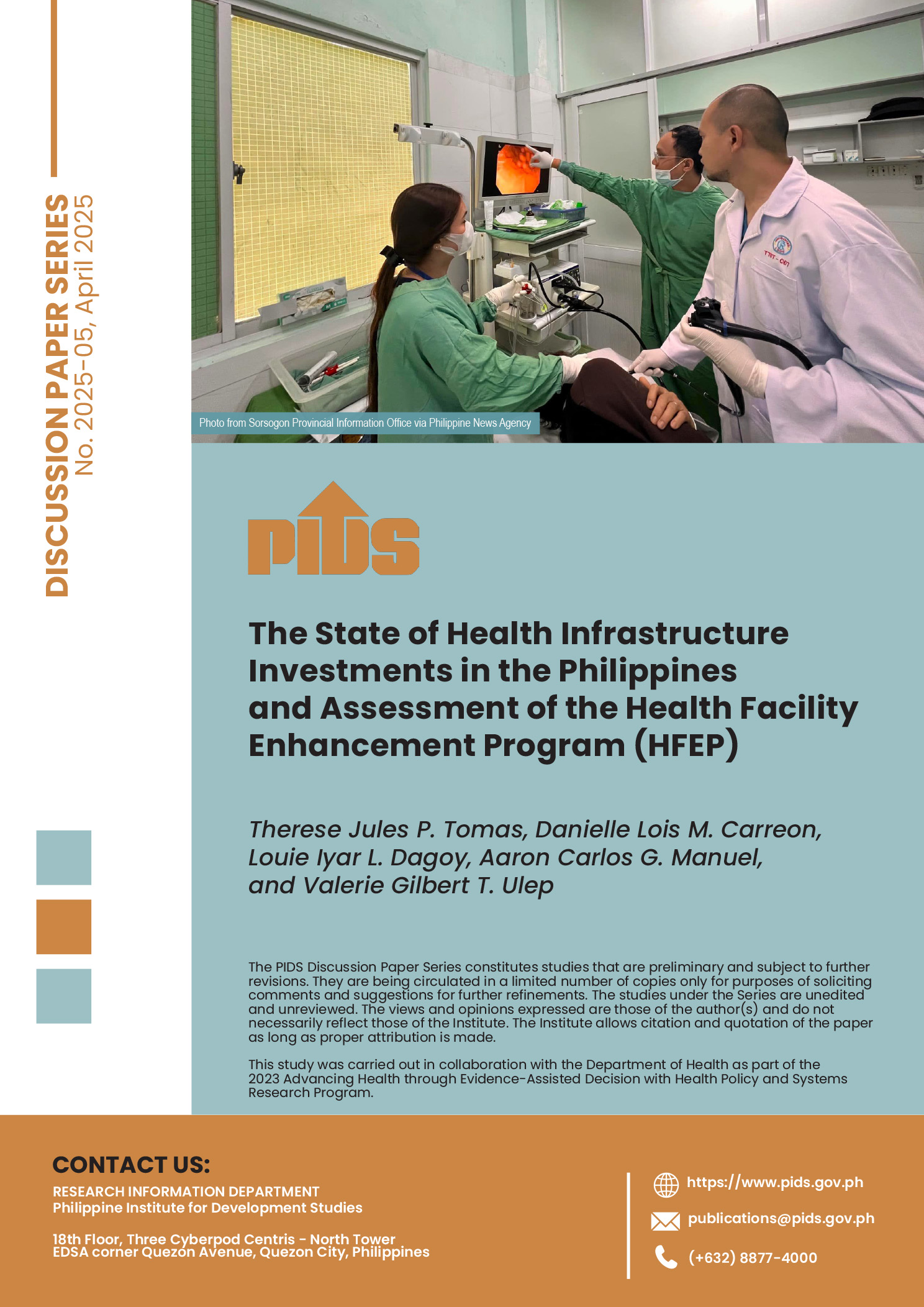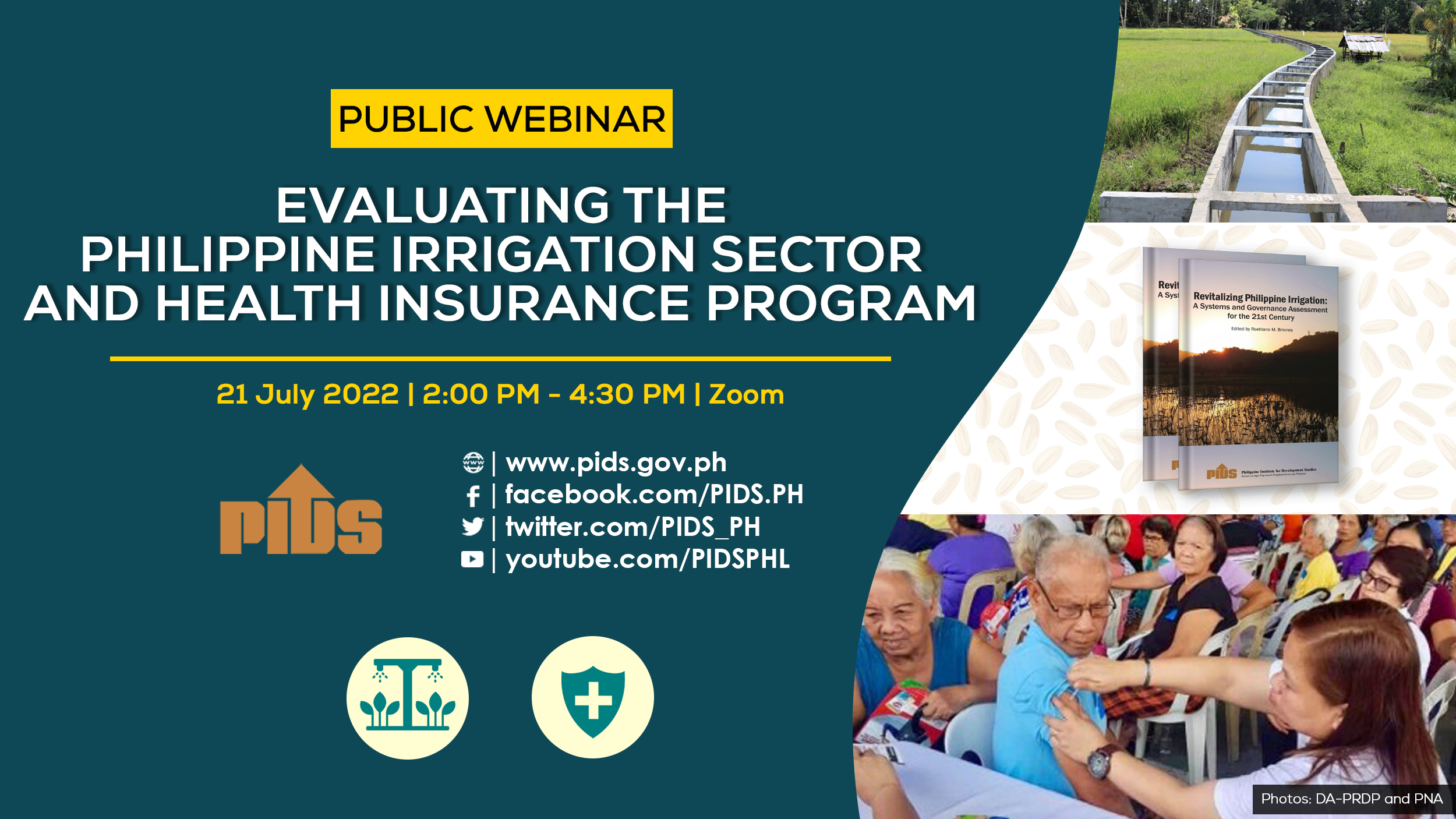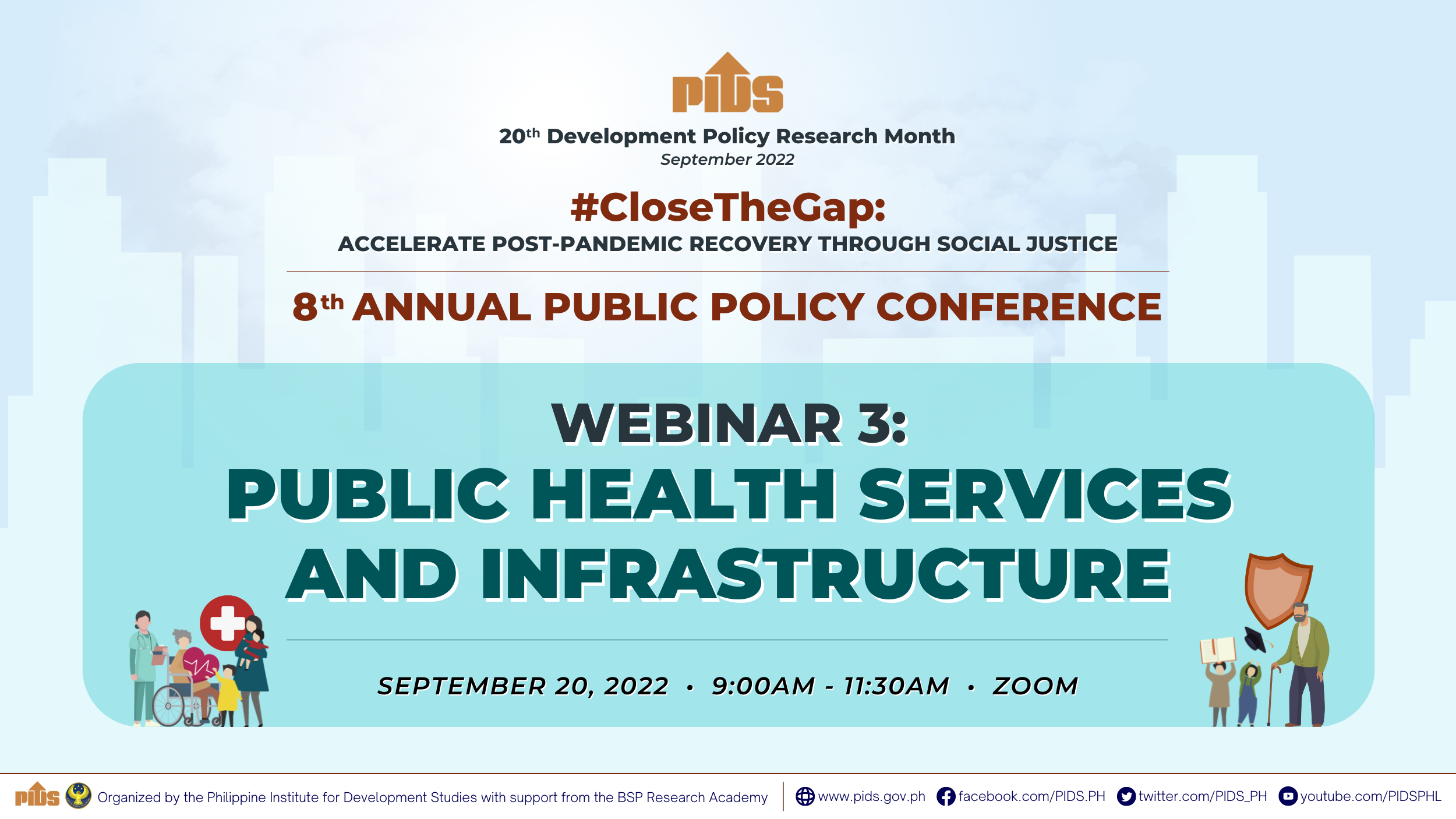QUEZON CITY, Feb. 2 - A recent paper released by state think tank Philippine Institute for Development Studies (PIDS) recommends the setting up of a dedicated organization that will oversee the development of policies and implementation of strategies regarding catastrophic health.
At present, various forms of financing for catastrophic expenditures are being provided by different public and private institutions, each of them having its own rules and procedures on how to avail them. The Philippine Health Insurance Corporation (PhilHealth), Philippine Charity Sweepstakes Office (PCSO), Department of Social Welfare and Development, Philippine Gaming Corp., and some members of Congress are among the government entities that provide financial support to patients faced with catastrophic health problems.
The Department of Health (DOH) defines catastrophic health expenditures as out-of-pocket spending on health that can drive patients and their families to or further into poverty.
Alvin Caballes, author of the PIDS study, said the proposed organization may be organically within the DOH or a semi-autonomous body. Such unit, he said, may create a comprehensive benefits program for patients and families. It should also coordinate with regulatory offices to ensure that improved financing is complemented by readily available and quality health services.
However, should the government choose to retain the existing structure, Caballes maintained there should be at least a common definition for catastrophic health expenditures so that institutions will have a unifying concept to base their policies and strategies on.
At present, each financing institution has its own definition of catastrophic health expenditures anchored on its organizational mandate and operational capacities. This, according to the study, leads to discrepancy between what patients perceive as a severely distressing situation and what most institutions consider as merely usual. Thus, the timeliness of response provided by financing institutions oftentimes do not match patients’ urgency of need.
Caballes also pointed out there is no systematic documentation of how these agencies actually select and support their beneficiaries. He highlighted the importance of looking into whether these agencies can effectively and equitably address catastrophic health expenditures or not.
Likewise, the paper also highlighted the varying amount and timing of financial support across different agencies.
“For example, in terms of magnitude, PhilHealth and PCSO are providing more substantial support, although the former can be accessed only at the end of a hospital confinement while the latter can be expected earlier, as enabled by guarantee letters,” the author explained.
The PIDS paper also pointed that the documentary and procedural requirements for availing of financial assistance are not uniform across agencies. This problem is exacerbated by the limited awareness of patients about these requirements and their incapacity to readily comply.
In conclusion, the study described the existing institutional responses to catastrophic health expenditures in the country as disparate and inadequate. The burden to seek help from one financing source to another is on patients and families, despite the serious illnesses and social costs they are already shouldering. The enhancements proposed by the PIDS study are aimed to improve this scenario. (PIDS)
PIDS study proposes oversight agency for ‘catastrophic’ health financing












